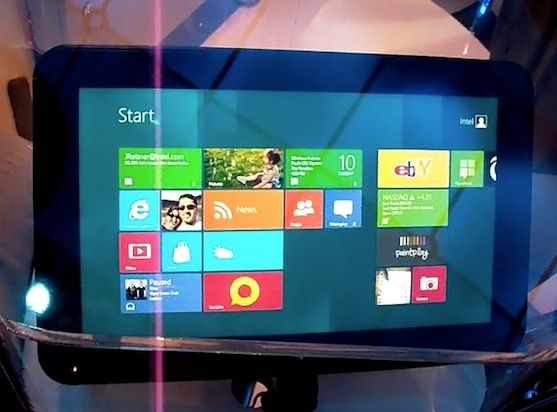Advice for Windows 8 launch strategy: Target SMB first

Windows 8 is not released yet but it is already something you either love or hate. The redesigned Metro interface invokes either thoughts of delight or horror depending on how each person views the sleek, modern design. Convincing folks to upgrade to Windows 8 will be a monumental task for Microsoft, even harder than most new versions. It might be a good strategy to target the small/medium business (SMB) first to get Windows 8 rolling.
Microsoft is taking the scattergun approach with Windows 8, supporting desktops, notebooks, tablets, hybrids, and possibly new formats. The Windows RT version for ARM-based devices will be aimed at consumers, which will initially be a hard sell.
Related: Q&A: What BYOD means for IT | Can the enterprise popularize notebook, tablet touch hybrids?| Great Debate: Can the enterprise popularize tablet-laptop hybrids?
Early sales of most new versions of Windows come through the sale of new computers. That will almost certainly be the case with Windows 8, and the source of most early sales to consumers. There is no indication that Windows RT tablets and the like will initially be big movers in the consumer space, so Microsoft should go after the SMB market.
A well-designed campaign at Windows 8 launch targeting small and medium businesses will end up pushing all of the computer formats Microsoft wishes to hit. Redmond should work closely with OEMs to offer total computing solutions for those companies, integrating desktops, notebooks, and tablets.
Small businesses in particular will be a good fit for Windows RT tablets; the BYOD movement should help that along. The SMB market can support desktop, notebooks, tablets, and all formats of Windows 8 devices. Targeting it first can get Windows 8 in users' hands, something that will be critical to build up interest for the consumer market.
It might be easier to get Windows RT tablets into the small business than in consumer's homes. It will be easier to make a usage case for the workplace for them. Tablet users will end up shuttling them between work and home, so the benefits to both will be exposed. Marketers should be able to take advantage of this to get the word out to eventually get the consumers at home.
Large enterprises usually take a long time to upgrade to new versions of Windows, and the totally new design of Windows 8 will probably make that cycle even longer than usual. Smaller operations will be easier to penetrate, and hopefully the big boys will follow. That's my advice to the folks in Redmond.
Related:
- The key to lower price Ultrabooks? One word: Plastics
- HP’s new laptop lineup: Will consumerization kick in?
- Samsung raises design bar with Series 9 laptop
- CNET: HP updates Pavilion laptops, including new m6 fauxtrabook
- HP announces Envy ultrabooks, ’sleekbooks,’ business-targeted EliteBook Folio
- Mobile all-in-one stands out among trio of new HP printers
- ZDNet UK: HP delivers EliteBook Folio ultrabook for business
- Intel plays up user experience over hardware on Ultrabooks
